For South Korea, making Do Kwon pay for his alleged crimes easier said than done

South Korea’s attempts to bring Terraform Labs Pte. Ltd. chief executive officer Do Kwon to justice might face legal and operational hurdles, according to experts Forkast spoke to even as prosecutors are likely to pursue charges of fraud against him.
Following the issuance of an arrest warrant earlier this week on alleged charges of violating the country’s Capital Markets Act, the Seoul Southern District Prosecutors’ Office might also look to level charges of fraud with intent, a member of the team told Forkast.
The member of the prosecuting team said Kwon’s possible arrest will not stop the ongoing investigation on fraud charges. However the effectiveness of such an arrest is circumspect without the involvement of the Interpol as Kwon is believed to continue to live in Singapore.
“We don’t know if it will be one offense or two, but we will not stop [the investigation],” Choi Sung-kook, prosecutor at Seoul Southern District Prosecutors’ Office told Forkast.
“We don’t know if it will be one offense or two, but we will not stop [the investigation]”
– Choi Sung-kook, Seoul Southern District Prosecutors’ Office
The office started after the multi-billion dollar implosion of the Terra-LUNA project in May. A group of investors who lost millions of dollars had filed a lawsuit against the developers of the project on a multitude of charges, including fraud.
Terraform Labs spokesperson declined to comment on the charges that face Kwon, while Kwon himself has not responded to Forkast’s queries via text message.
When custody is nine-tenths of the law
South Korean prosecutors also asked the Ministry of Foreign Affairs to cancel Kwon’s passport though it was not immediately known whether he possessed passports issued by other countries, notably from countries that allow the purchase of a second passport through investments.
This comes as despite efforts to find critical evidence such as a search and seizure of local crypto exchanges, the prosecutors are yet to announce evidence of fraud against Kwon and his associates.
See related article: Terra CEO Do Kwon faces ‘illegal alien’ status in Singapore as Seoul cancels passport
That may be a tall order as under South Korean law, prosecutors will need to prove intent to commit fraud for charges to be accepted by a court of law, blockchain and crypto law attorney Koo Tae-on of Seoul-based Law Firm LIN told Forkast.In Koo’s opinion, prosecutors may have opted to arrest Kwon based on securities law as it would be relatively easier to prove.
In doing so, South Korean prosecutors would be adopting the playbook adopted by their counterparts in the U.S. Terraform Labs and Kwon had impeded a U.S. Securities and Exchange investigation for years by challenging an investigative subpoena for documents from the company and testimony from Kwon.
In the case of South Korean prosecutors, they would need to cross-examine Kwon, and his associates along with access to internal emails, chats and communications of Terraform employees to prove any intention to commit fraud. The probability of doing that would be higher if the prosecutors can get custody of Kwon through the arrest warrant for securities violations.
The basis of the alleged violation of the Capital Markets Act is that the prosecutors are seeking to classify TerraClassicUSD (USTC) and Luna Classic (LUNC), then called UST and LUNA, as investment contract securities, prosecutor Choi told Forkast.
However, local experts think it’s unlikely that prosecutors could get a court to penalize Kwon and Terraform Labs for capital markets violations. “I think it’s a long shot,” Koo told Forkast on the possibility of a South Korean court actually recognizing Terraforma’s cryptocurrencies as securities.
“I think it’s a long shot.”
-Koo Tae-on, Law Firm LIN
See related article: South Korea issues arrest warrant for Terraform Labs CEO Do Kwon
“The so-called investment contract on South Korea’s capital markets act is very different from that of the U.S. Investment contract securities,” Koo said. “It refers to a contractual right in which one investor invests money in a joint project with another individual, where the gains and losses come from the results of a business operated by that other individual,” he explained.
Prosecutors are seeking to classify the LUNC as a “joint project” or an investment partnership as price fluctuations of the token were not decentralized as claimed by Terraform as the firm manipulated supply, Koo told Forkast. “[Hence], I believe they saw Do Kwon, the decision maker, as the issuer of that investment contract security.”
Spanner in the works
The problem with the South Korean prosecutors’ logic is that a “joint project” classification would apply to every other cryptocurrency that is not decentralized, Koo told Forkast.
“The impact will not stop at Terra-LUNA and [such a view] will affect other cryptocurrencies,” Lee Jang-woo, blockchain business expert and adjunct professor at Seoul-based Hanyang University told Forkast. “So I think it’s difficult for the court to actually make that judgment.”
“If they designate LUNC an investment contract security, the exchanges that listed LUNC would be in trouble too,” Lee said. That list would also theoretically extend to crypto services firms that made use of LUNC as they would now be considered as businesses that dealt with securities without a license, Lee added.
Some 280,000 South Koreans were affected by the collapse of the Terra-LUNA project, with several publicly known cases of people taking their own lives after losing their life savings.
“It’s a whole nother story if there weren’t any victims involved,” Lee said. “Fundamentally there were victims, and someone has to be held responsible and punished.”
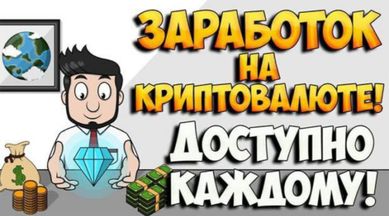
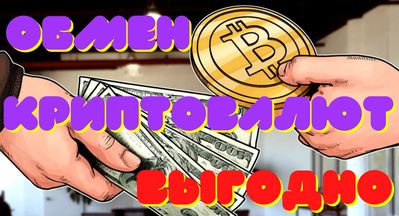
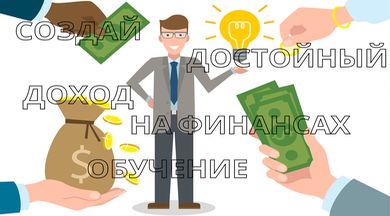

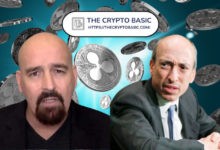

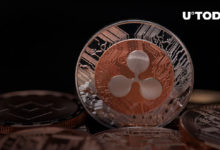
 Bitcoin
Bitcoin  Ethereum
Ethereum  Tether
Tether  USDC
USDC  Dogecoin
Dogecoin  Cardano
Cardano  TRON
TRON  Chainlink
Chainlink  Bitcoin Cash
Bitcoin Cash  Polygon
Polygon  Litecoin
Litecoin  Dai
Dai  LEO Token
LEO Token  Ethereum Classic
Ethereum Classic  Hedera
Hedera  Cosmos Hub
Cosmos Hub  Cronos
Cronos  Stellar
Stellar  Stacks
Stacks  OKB
OKB  Maker
Maker  Monero
Monero  Theta Network
Theta Network  Algorand
Algorand  NEO
NEO  Gate
Gate  KuCoin
KuCoin  EOS
EOS  Tezos
Tezos  Synthetix Network
Synthetix Network  IOTA
IOTA  Bitcoin Gold
Bitcoin Gold  Tether Gold
Tether Gold  TrueUSD
TrueUSD  0x Protocol
0x Protocol  Enjin Coin
Enjin Coin  Zilliqa
Zilliqa  Ravencoin
Ravencoin  Siacoin
Siacoin  Holo
Holo  Qtum
Qtum  Basic Attention
Basic Attention  Zcash
Zcash  Dash
Dash  NEM
NEM  Decred
Decred  Ontology
Ontology  Lisk
Lisk  Waves
Waves  DigiByte
DigiByte  Numeraire
Numeraire  Nano
Nano  Status
Status  Pax Dollar
Pax Dollar  Hive
Hive  Steem
Steem  Huobi
Huobi  OMG Network
OMG Network  BUSD
BUSD  Ren
Ren  Bytom
Bytom  Bitcoin Diamond
Bitcoin Diamond  Kyber Network Crystal Legacy
Kyber Network Crystal Legacy  Augur
Augur  Energi
Energi  HUSD
HUSD